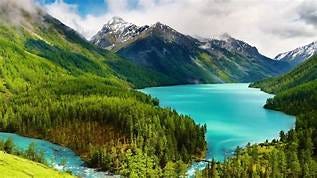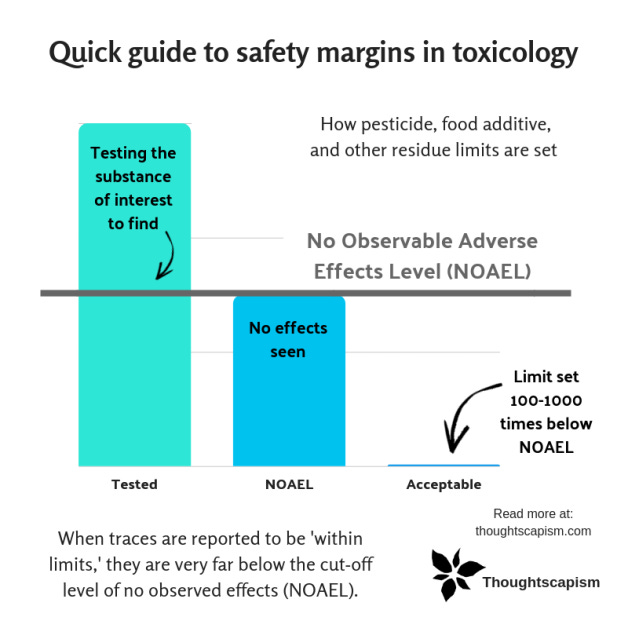The Meaninglessness of the Word "Natural"
Mistakes in Marketing
We all know the word natural has become a buzzword, and its meaninglessness is often used to sell products. But what does natural really mean? Natural doesn't always mean safe, and the designation of "natural" can be misleading. In this blog post, we will discuss how marketers misuse the idea of "natural" to sell their products and why nature is not as trustworthy as it seems.
In Alan Levinovitz's book, "Natural: How Faith in Nature's Goodness Leads to Harmful Fads, Unjust Laws, and Flawed Science", the argument pertaining to "naturalness" is tested. The book is written as a science-based critical thinking tool to unveil the flawed arguments and misunderstandings about natural products, health trends, and "green" initiatives. It becomes clear that many of these beliefs are based on faith instead of science.
Take for example the marketing around so-called "natural" products. A cursory look at the ingredients of many natural products will reveal all sorts of synthetic and processed chemicals. Despite this, these products often bear labels like "all-natural," "organic," or even "fair trade." In some cases, the only truly “natural” ingredient in a product might be water.
Many people believe that anything derived from nature is automatically safe and good for them. Of course, this is not the case at all. Poisonous plants and mushrooms are natural; therefore, science has to be employed by people to determine which plants or mushrooms are safe for consumption.
The word "natural" should also not be used as an indicator of efficacy because just like synthetic chemicals derived from nature can have harmful effects, natural chemicals derived from nature can be effective. If science is not employed to test the efficacy of natural products, then it would only mean that people are taking words for granted and just assuming something because it comes from nature makes it good or safe.
Toxicology
The truth about what science has discovered over time is that there really is no such thing as a natural product. The word is meaningless because it can describe anything that comes from nature, which includes both good and bad things. It's not just synthetic chemicals derived from nature that can be harmful, but also natural chemicals derived from nature.
In fact, some of the most dangerous substances on Earth are natural products. For example, consider venom from snakes, spiders, and scorpions. It's all-natural, but it can also be deadly. Other examples of dangerous natural products include arsenic, cyanide, and mercury.
When it comes to toxicity, the dosage of the substance and time of exposure makes the poison. For example, if you were to consume over 10 grams of caffeine in a very short period of time that can be toxic, but you would probably have to drink 30 caffeinated drinks rapidly to reach that threshold.
It's important to be aware of the dangers of natural products because companies often misuse the word in their marketing strategies. They'll try to convince consumers that a product is natural and therefore should be trusted. However, science has shown that it's not merely what something is derived from (nature) but also how the product was made which determines whether or not a natural ingredient can be safe to use. There is a whole field dedicated to studying safety and toxicity of substances dubbed toxicology.
Natural and Organic
Natural products are often labeled as "organic." Organic food is regulated by the United States Department of Agriculture because it is supposed to meet certain standards. For example, the food must be grown without synthetic fertilizers, sewage sludge, irradiation, or certain forms of genetic engineering. However, organic farming still uses pesticides and herbicides and these chemicals can be harmful to both people and the environment in the right dosages.
The term "natural" is meaningless because it doesn't take into account how something is produced. For example, the word "natural" can be used to describe both organic and non-organic foods. The term "organic" is regulated by the government, while the term "natural" is not. This means that a food producer can label their product as "natural," even if it contains synthetic chemicals.
Nevertheless, organic isn’t considered “better” than conventional farming when it comes down to certain environmental attributes. For instance, organic farming tends to lead to higher land usage which is a major environmental concern compared to more conventional farming. It might be the case organic farming is not better for nature.
Not to mention farming itself isn’t really “natural” to begin with as we are purposefully growing food.
Conclusion
Getting mauled by a bear is natural, tornados are natural, rattlesnakes are natural, etc. Numerous unpleasant and outright dangerous things are natural. When it comes to safety, efficacy, or preferences the word “natural” is meaningless.





